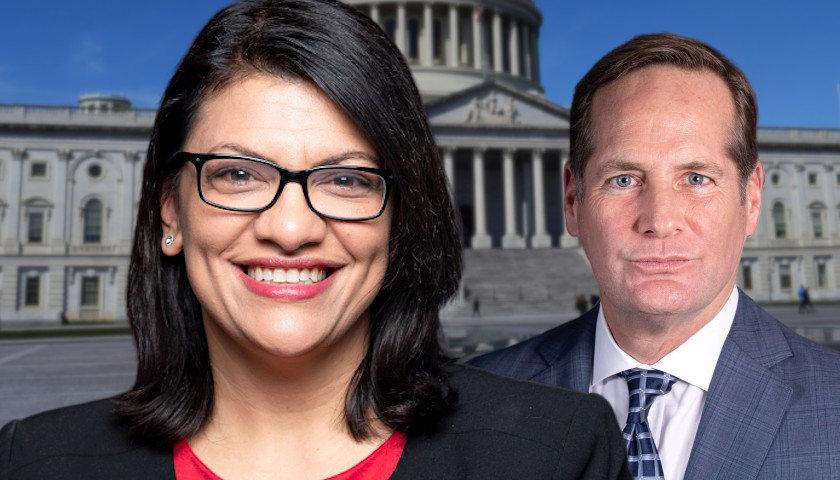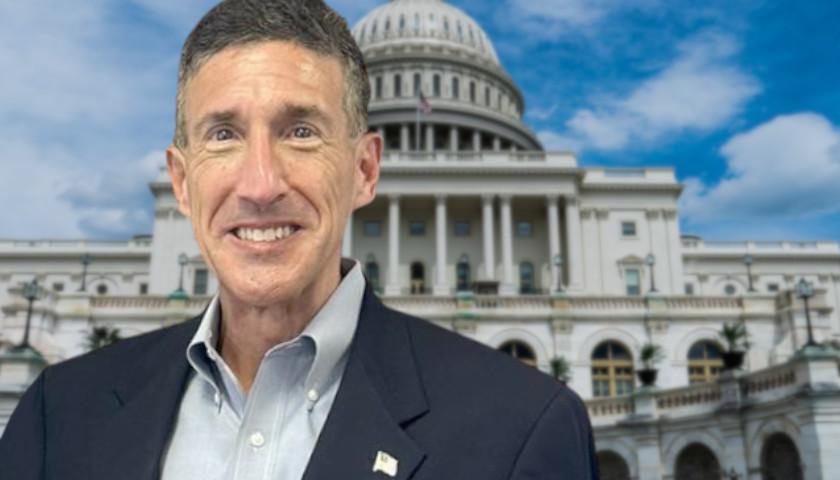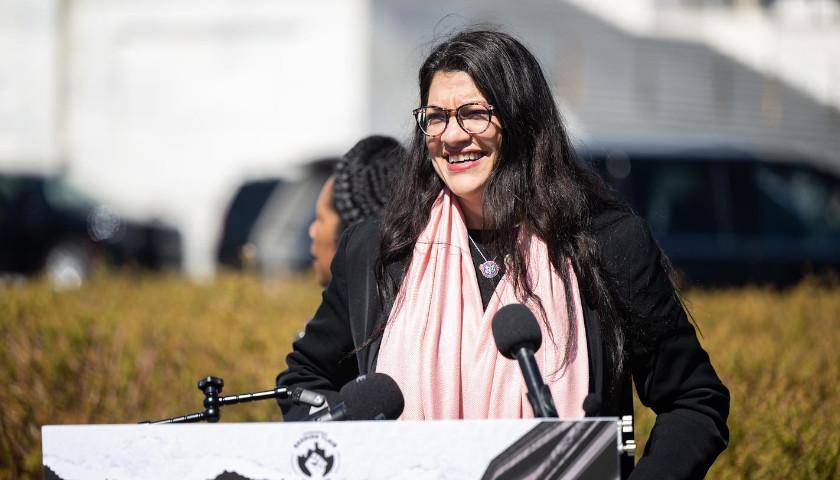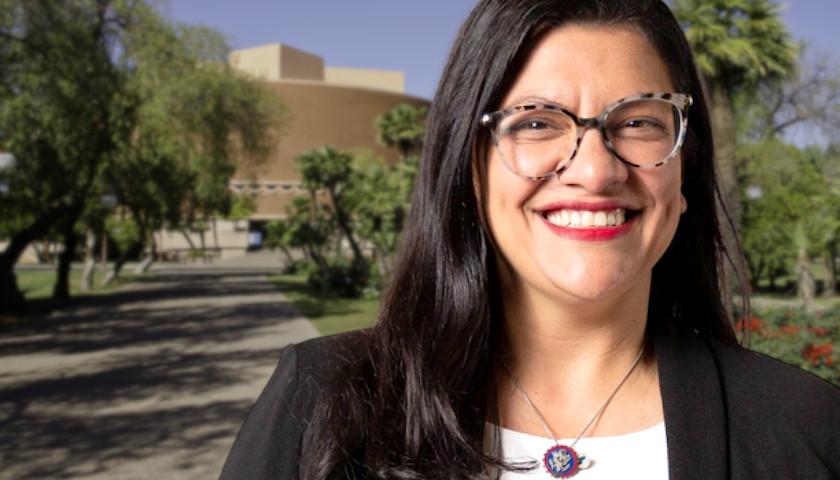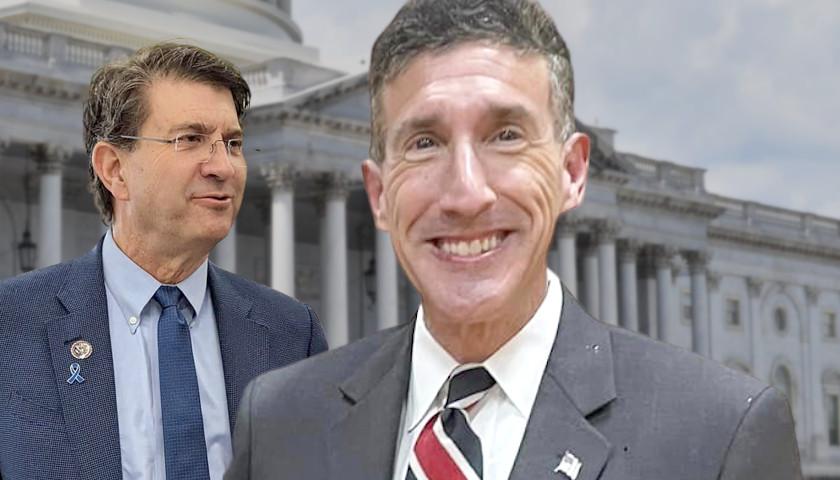by Bruce Walker
Two Democratic U.S. representatives, Michigan’s Rashida Tlaib and California’s Harley Rouda, collaborated on a letter to Nestlé Waters President and CEO Fernando Mercé, linking the company’s business operations with the Flint water crisis.
Their letter is the opening salvo by Tlaib and Rouda in their investigation of Nestlé Water’s business practices. The pair demanded Nestlé turn over company documents, including information pertaining to the extraction and selling of water as well as the health and environmental risks Tlaib and Rouda said are associated with plastic bottles.
Both Rouda and Tlaib serve, respectively, as chairman and vice-chairwoman of the U.S. House of Representatives Subcommittee on Environment. Nestlé Waters operates a bottled-water business outside Evart.
The representatives asserted the company pumped 3.4 billion gallons of groundwater in Michigan, and recognized sales of more than $343 million from the resulting product.
“The Subcommittee is concerned that Nestlé is taking a critical public resource from communities in need without equitably reinvesting in those communities and ensuring long-term environmental sustainability,” Tlaib and Rouda said in the letter dated March 3.
The representatives also stated: “When Flint, Michigan, was in the midst of a lead contamination crisis, Nestlé continued to extract spring water from Michigan communities like Evart for the purpose of selling the water outside of the state, though this town was located just two hours from Flint.”
The letter also expresses Environment Subcommittee concerns about microplastics, identified in the letter as small particles of plastic in water bottles capable of penetrating tissue and entering the bloodstreams and organs of both people, including babies in utero, and marine life. Citing a World Health Organization study, the letter asserts microplastics were found in 90 percent of bottle water tested.
In a statement emailed to The Center Square, Nestlé refuted the claims of Tlaib and Rouda.
“We work with local, state, and federal agencies to help ensure we meet all regulatory requirements, and we have strict procedures in place to maintain the sustainability of our operations,” the statement said.
“It would make absolutely no sense for Nestlé Waters to invest millions of dollars into local operations just to deplete the natural resources on which our business relies. We are transparent about our product quality. Since 2005, we have made detailed water quality reports publicly available for our brands, which can be found on our Nestlé Waters North America website,” the statement continued.
“Rep. Tlaib’s statements criticize Nestlé for continuing to pump water from an Evart aquifer when Flint was ‘in the midst of a lead contamination crisis,’” Jason Hayes, environmental director of the Mackinac Center for Public Policy, told The Center Square. “But Tlaib’s attempt to link Nestlé’s operations with the Flint water crisis is a grossly unfair political stunt.”
Hayes said instead that government failed Flint.
“Flint’s water crisis was an example of the abject failure of government, at the municipal, state, and federal level, where government managers failed – or refused – to oversee the proper treatment of surface water taken from the Flint River,” he said. “Nestlé, on the other hand, operates a legal and properly permitted business, bottling water from an underground aquifer near Evart, which is about 130 miles away from Flint.
“Flint’s water crisis has nothing to do with bottled water from the other side of the state and Rep. Tlaib should be well aware of that fact,” Hayes added.
The Nestlé website states that 90 percent of the water bottled from Michigan stays in the Midwest. The company also says it employs 280 Michigan residents, and is indirectly responsible for another 765 jobs in the state. The company also states it has generated an estimated $160 million of economic activity in Michigan, including $50 million of goods and services purchased from in-state companies.
“At Nestlé Waters North America, it is our business and our passion to care for water, and we take it seriously. We recognize the significant responsibility we have as a bottled water company to operate responsibly and sustainably today, and well into the future. We operate under the principles of putting our communities first, being good stewards of water and the environment, and promoting healthy hydration,” the Nestlé statement said.
The subcommittee has asked Nestlé to comply with its document request by Tuesday, March 17.
– – –
Bruce Walker is a regional editor at The Center Square. He previously worked as editor at the Mackinac Center for Public Policy’s MichiganScience magazine and The Heartland Institute’s InfoTech & Telecom News.

